COP15: What Britain should be Demanding for the Blue Economy
09.12.2022
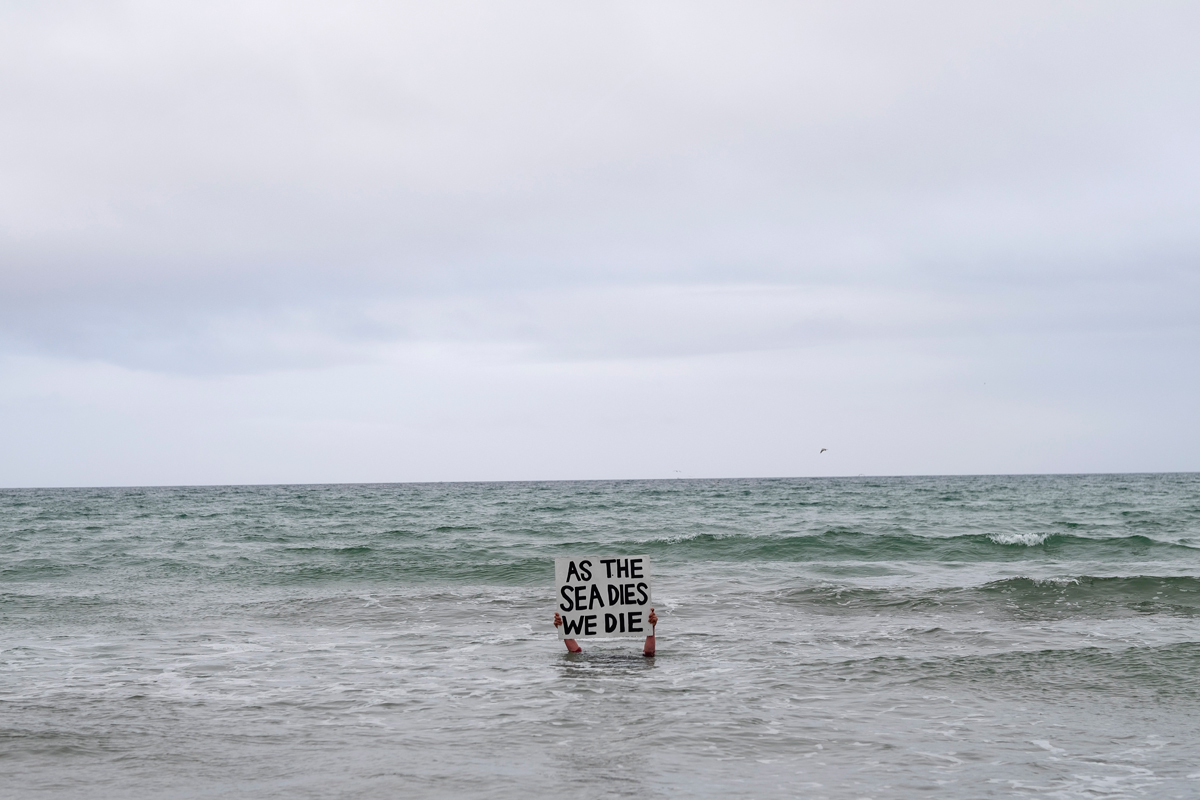
By Guy Standing, Professorial Research Associate, SOAS University of London, and author of The Blue Commons: Rescuing the Economy of the Sea.
Britain’s progressive politicians and economists need to develop a strategy for the blue economy, a coherent approach to all the activities that take place in, under and alongside the sea. Few show any interest, and commentary on the global COP15 conference on rescuing biodiversity taking place in December hardly mention marine issues, even though the sea covers 71% of the world’s surface, contains three-quarters of all life (80% of biodiversity) and of the 28,000 known species of fish, over a third are being depleted faster than they can reproduce.
British politicians should remember that the UK’s sea space is 27 times as large as its land area, due to the United Nations Convention of the Law of the Sea (UNCLOS) of 1982, which legitimised the concept of Exclusive Economic Zones, giving coastal countries ownership of 200 nautical miles from their coasts, including around any distant islands. Britain gained 6.8 million square kilometres.
If all commercial activities in the sea were counted as a country, the sea would be the world’s sixth largest economy, roughly equivalent to the UK. It is expected to account for 10% of global GDP by 2030, if due account is taken of the substantial unreported and illegal activity. The World Bank, OECD and others predict that future economic growth will be led by ‘blue growth’.
There are reasons for considerable concern about that, but politicians who say their overwhelming priority is ‘growth, growth, growth’, as both Keir Starmer and Liz Truss have asserted this year, may not appreciate that much of that growth would have to depend on the sea. And it is a safe bet that they have not begun to think how the seas could bear the burden.
The fate of the Ocean depends on us all.
Our interventions depend on your support.
Just consider the forecast that globally there will be 145 million electric vehicles on the roads by 2030, compared with 11 million today. This is going to require an enormous expansion in the mining of minerals, most notably for lithium-ion batteries. But there is no way enough lithium, cobalt, nickel and other minerals could come from the land. Most would have to come from under the sea. In just one deep sea area of the eastern Pacific there is more nickel, manganese and cobalt than in all the world’s terrestrial resources.There is a paradox. There is sudden hope that the long historical link between economic growth and greenhouse gas emissions (and global warming) has been broken, as articulated by Martin Wolf and by The Economist. A fear should be that, if so, this reflects an offloading on the blue economy. The proportion of gas and oil coming from the sea has risen from 20% to 30% in the past few years. Offshore wind is growing rapidly, as is the mining of the oceans for minerals and rare earths needed for electric cars, electronic goods and many other modern goods. And all those giant wind turbines being constructed require the mining and production of a vast amount of metals and minerals.
How much is the ocean carbon sink being eroded? Global warming is determined by greenhouse gas emissions minus the carbon absorption by the carbon sinks. If emissions are reduced but the absorptive capacity of the carbon sinks is reduced, we could be no better off.
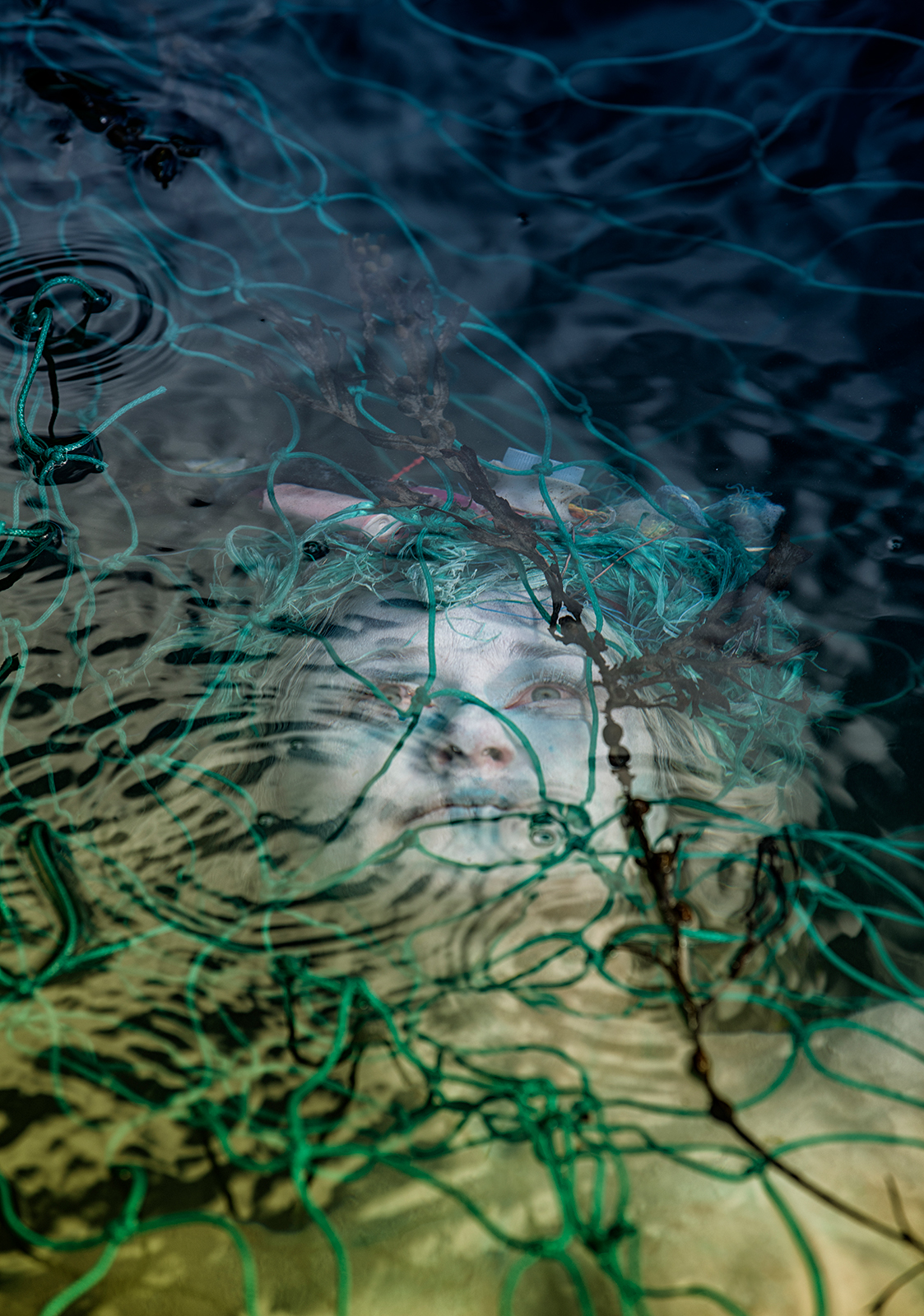
The global economy is faced by a conundrum. If deep sea mining is required to produce the amount of minerals needed for the green industrial revolution, would that be justified if the mining would deplete the sea’s capacity as a mitigating force, producing in effect a new form of coupling between economic growth and global warming. Those who believe there must be ‘degrowth’ – or slower growth – would surely not be convinced by the claims that decoupling is already the long-term trend.
That awesome issue aside, what should the British government and opposition parties be demanding from COP15? This huge conference taking place between December 7 and 19 is intended to come up with a renewed action plan for implementing the UN Convention on Biological Diversity of 1992, which has been ratified by 196 countries, the glaring exception being the United States. It is a sad indictment of the world’s political leaders that no President or Prime Minister planned to participate.
COP15 coincides with the 40th anniversary of UNCLOS on December 10, which should set the context for what is done for the blue economy and the biodiversity and ecosystems in the sea. Although the venue for COP15 has been shifted from China to Montreal due to Covid, the Chinese government has the presidency. This does not augur well. China, which has amassed a long-distance fishing fleet of 17,000 vessels, is the world’s worst offender when it comes to overfishing and illegal fishing. It also accounts for over half of the 50 billion tonnes of sea sand excavated each year, creating a global shortage and severe damage to coastal ecosystems.
And China is compromised on the topical and controversial issue of mining in the sea. While COP15 deals with biodiversity issues in the territories of nation states that are party to the UN’s biodiversity convention, and so will not deal with deep sea mining per se, which is an unresolved issue of negotiations of what is known, for short, as the Ocean Treaty scheduled optimistically for conclusion next August, the darkening shadow of deep sea mining should hang over COP15
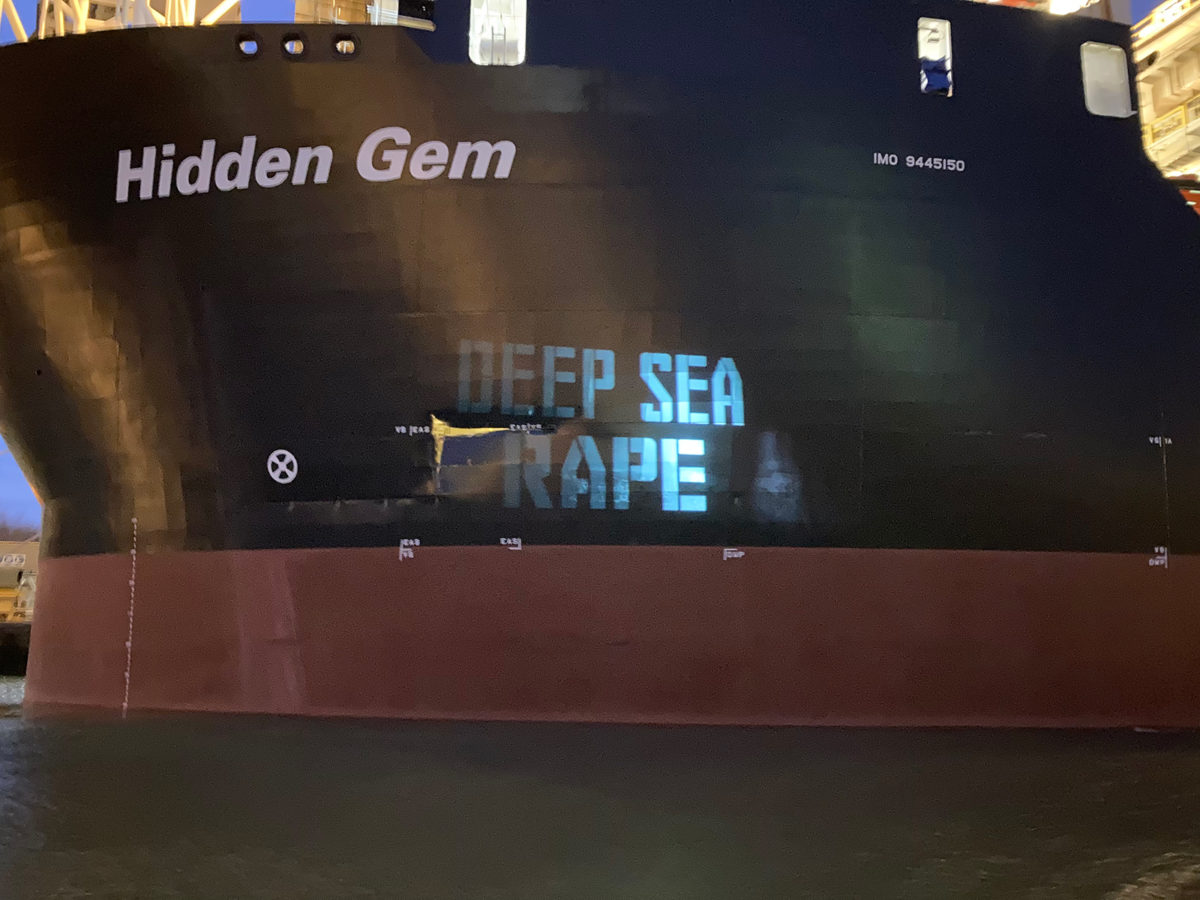
Deep Sea Mining
A time bomb is ticking. Although globally transformative in many ways, UNCLOS was the outcome of 25 years of painful global negotiations and was a set of compromises. One was clear. In return for accepting the conversion of much of the sea into Exclusive Economic Zones, it was agreed that the Deep Sea area outside them, 54% of the world’s sea area, would be treated as a commons in which no mining would be allowed until, first, a set of regulations, a Mining Code, were drawn up to limit geopolitical tension and to make deep sea mining ecologically sustainable, and second, a set of sharing mechanisms were established to ensure that the benefits would be shared equitably with all countries, including the 43 landlocked countries.
To produce the Code and sharing mechanisms, UNCLOS set up an International Seabed Authority (ISA), which came into operation in 1994, based in two drab buildings in Kingston harbour, Jamaica. In the ensuing 28 years, the ISA has failed to produce either a Code or sharing mechanisms. It has been turned into little more than an agency for corporate mining capital.
The failure started with the fact that it has been provided with a ridiculously small annual regular budget of about $9 million, to regulate and monitor over half the world’s sea. A strategic error was made when the ISA set up a scheme by which mining corporations, if working with one or more governments, could apply for an exploration licence for deep sea mining, provided they paid the ISA $500,000. It is also scarcely surprising that the ISA has not turned down one application. Currently, there have been 31, covering over 1.5 million square kilometres of sea bed. The country with the most is China, with five.
the time bomb is ticking
The time bomb started ticking in June 2021, when the tiny Pacific island nation of Nauru, collaborating with the Canadian mining corporation, TMC, triggered an obscure Article in UNCLOS that states that, if a Party to the Convention applies to start commercial mining, the ISA has two years to produce an agreed Mining Code or mining can commence. When Nauru and TMC activated the notice, they were granted an exploratory licence, and by December 2022 will have mined 3,600 tonnes of ‘nodules’ containing minerals from a vast seabed area deep in the Pacific.
There is no prospect of a Mining Code by July next year, since it must be agreed by consensus of the 167 member countries and the European Union. The few countries with exploration licences and with the advanced technology are unlikely to agree now on the intended sharing mechanisms.
All of us should be deeply alarmed. The environmental impact of deep-sea mining could be catastrophic, which is why hundreds of scientists and policymakers have called for a moratorium. Massive machines will scour the ocean bed to pick up potato-sized polymetallic nodules, destroying everything in their path and creating sediment plumes that can suffocate coral reefs and other organisms hundreds of miles from the mining site. Such mining will damage the ocean’s ability to act as a carbon sink, accelerating global warming rather than contributing to its mitigation.
The French, German and Spanish governments have also called for a moratorium, backed by an initiative led by the World Wildlife Fund supported by some multinational companies. The British government should be pressed by Labour and other opposition parties to join the pressure to call a halt until enough there is scientific evidence that mining would be safe, until a Mining Code has been agreed and until sharing mechanisms have been agreed. This is not a parochial matter. It is an existential one that will affect the future of every constituent of every politician.
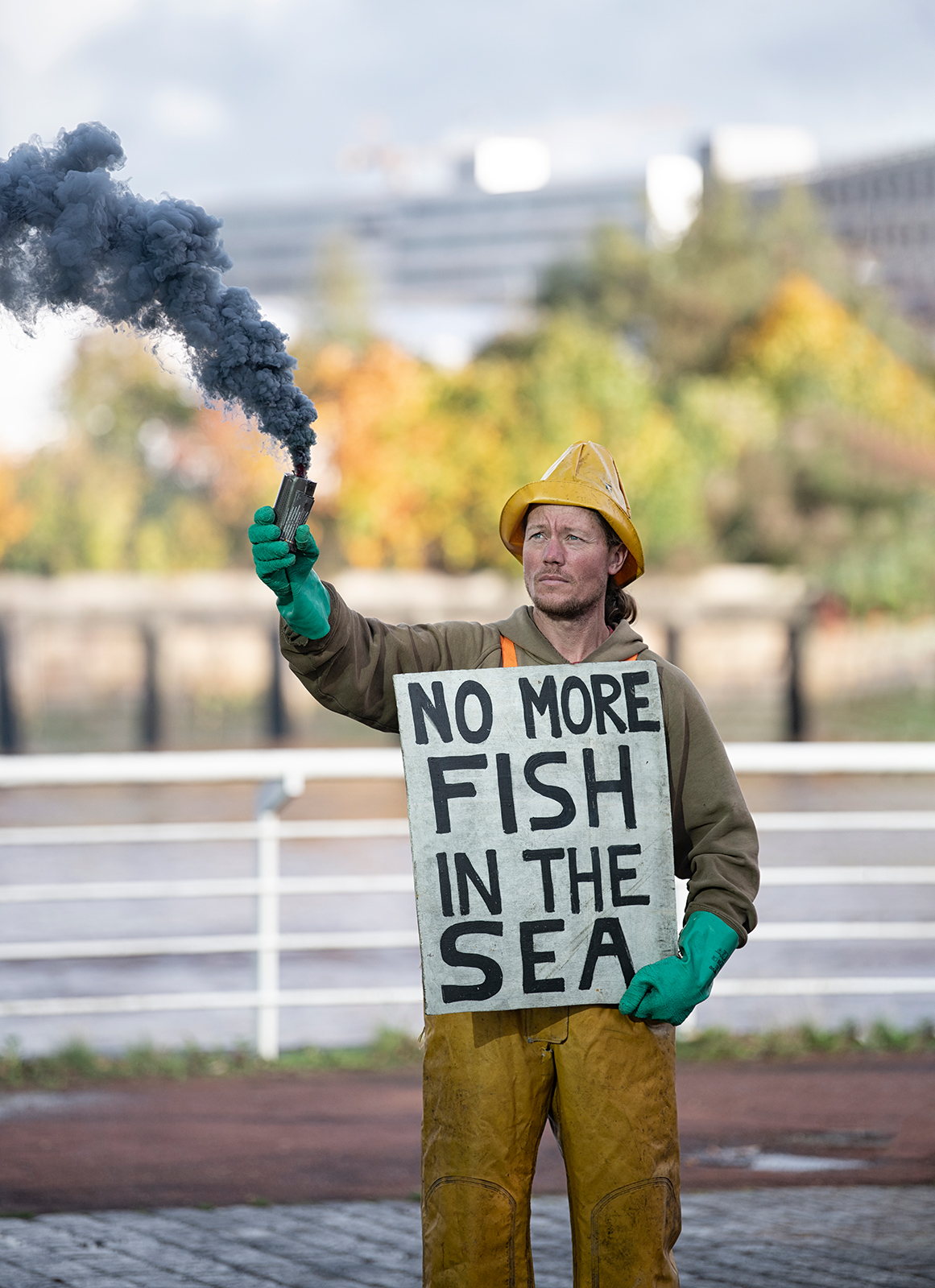
Fish and Fishing
By contrast, fish and fishing should be at the heart of COP15. Of the 28.000 known species of fish, 34% are under acute stress, being killed at a faster rate than they can reproduce. There is no specific ‘target’ in the draft COP15 agreement.
COP15: no target for fishing
The economic story of fishing and fishing populations in British sea space and globally has been disgracefully disastrous. Politicians have failed dismally to rectify the situation, which would have been relatively easy to handle had they tried. One statistic might give a clue to the seriousness of the crisis. The average hourly productivity of commercial fishing is today just 6% of what it was a century ago, in spite of huge technological changes that have increased ‘efficiency’. This exemplifies what is known as the Jevons Paradox.
The book on which this article is based explains how this has come about. This article is about some of the policies that could be done in Britain and elsewhere. Let us start with some global policies that are in the terrain of COP15. The long draft final agreement, drawn up in advance, has a set of targets. ‘Target 18’ on subsidies is vague, and should be rephrased to commit countries to scrap all fuel and ‘capacity enhancing’ subsidies given to industrial fisheries, amounting to $22 billion a year, which facilitate chronic overfishing and illegal fishing that are devastating fish populations and marine food chains. They should also end subsidies to offshore oil and gas, which pose a direct pollution threat as well as fuelling climate change.
Another sphere of activities that has been eroding the survival prospects of numerous species is the system of Fishing Access Agreements and joint ventures that have been growing in their wake. They are a neo-colonial disgrace. And they stem largely from UNCLOS and one of its compromises.
At the behest of countries with long-distance fishing fleets, fearful of losing access to the best fishing grounds, UNCLOS required countries deemed unable to exploit fishing grounds in their EEZs fully to allow foreign fisheries to catch the ‘surplus’. This has proven disastrous for developing countries, notably in Africa. The Soviet Union (and then Russia), the USA, Japan, and European countries, joined later by China, have drawn up 300 Fishing Access Agreements that have given foreign corporations nearly all the profits and allowed them to overfish with impunity. Fish populations and traditional fishing communities have been devastated, with China’s 17,000-strong long-distance fishing fleet the worst offender.
At COP15, negotiators should demand that all such agreements be made transparent, that all should share the benefits equally between foreign corporations and developing countries in whose waters they are fishing, that all industrial vessels should have independent monitoring teams on board and that penalties for breaking fishing limits should be strictly enforced.
Over 40 countries now operate some form of fishing quota scheme, including Britain. Most have been subject to abuse. In Britain’s case, the system has led to conglomeration, with quota concentrated in the hands of a few corporations. But the worst feature is that the government allows them to break the law with virtual impunity. It slashed the budget for monitoring and policing the sea and has allowed systemic overfishing and illegal fishing to be just a civil offence, not a criminal one. Thus, the biggest fishing trawler in the UK was caught with 632,000 kilos of illegally caught mackerel, was fined £96,000 and allowed to sell the fish, making a profit of over £400,000. No wonder fish populations around Britain are in deep decline. COP15 should include targets for effective penalties for quota breaking.
global finance. part of the problem
In the draft agreement for COP15 there is the customary call for a greater mobilisation of global finance. This is disingenuous. In most spheres of the blue economy, finance has been very much part of the problem, not the solution. Private equity, in particular, has invested heavily in industrial fisheries, and its business model is maximisation of short-term profits – move in, move out, move on. Representatives of major financial institutions should be kept well away from COP15 negotiations. Sadly, fat chance.
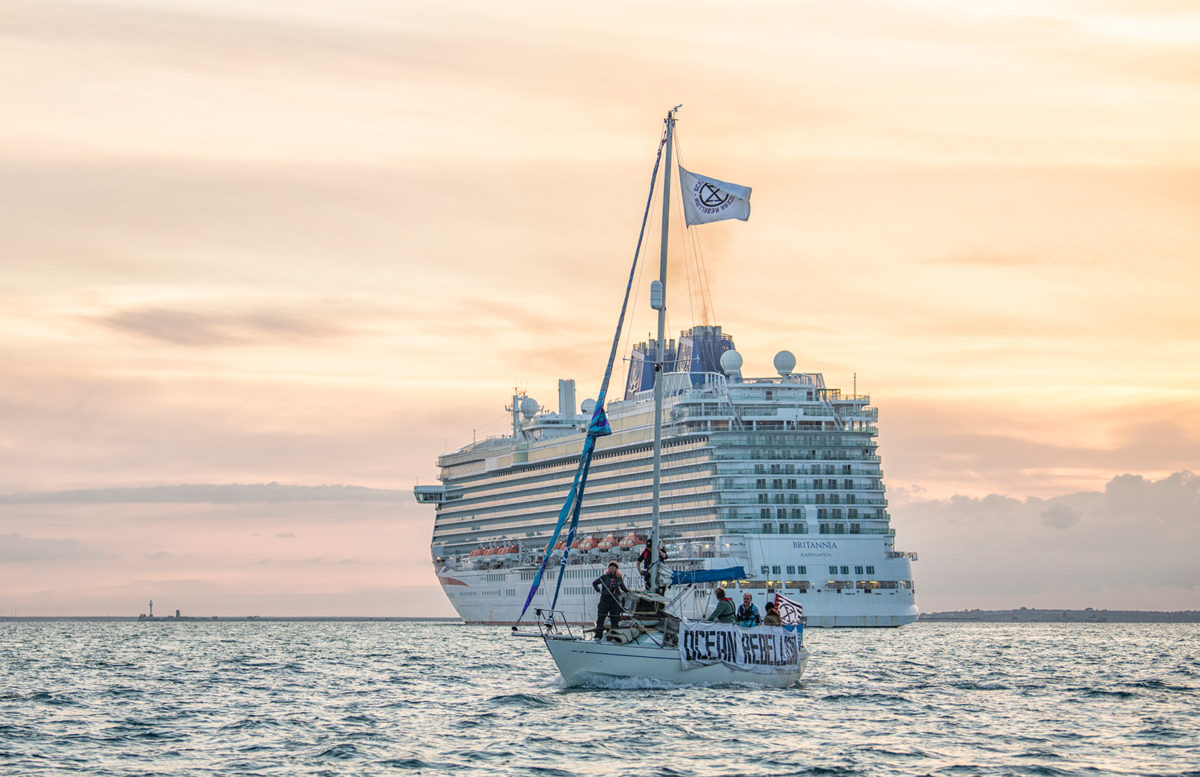
Noise: The Unmentioned Threat to Biodiversity
Noise does not receive a mention in the draft COP15 agreement. Why is there no ‘target’ for noise reduction? Imagine what incessant loud noise would do to your mental health and reproductive behaviour. Well, that is what is happening in the sea. There are over 95,000 ships of over 100 tonnes, with engines that make a noise the equivalent of thunderclaps. Noise levels in the sea have been doubling every decade since the 1950s, accentuated by mining and military exercises, and by airguns used in seismic mapping for offshore oil and gas exploration, the reverberations of which can be heard up to 4,000 kilometres away.
Noise has been shownto disrupt breeding and migration of numerous marine species, damaging reproduction. It should be a Target in the COP15 agreement to reduce noise levels steadily and substantially. Quieter engines are technically and economically feasible. Governments should start by agreeing on imposing a Noise Abatement Levy, to be paid by all vessels operating in their national waters if their engine noise exceeds the average for the size and type of vessel.
Fuel Pollution: The Harbour Killer
Every day in most of the world’s 835 major ports huge vessels enter and keep their engines running all the time they are there. They use the most polluting ‘bunker’ diesel fuel that makes the air and water toxic for all sorts of species, including humans. Research has shown that in recent years there have been 50,000 deaths from throat cancer and related illnesses in communities around the major ports of Europe, including Southampton.
Although there are now modest agreements to reduce shipping emissions by 2050, they need to be made much stronger, and the reduction should be made much quicker. Marine and human species cannot wait.
Aquaculture: Global Menace dressed as a Saviour
The world’s fastest growing food sector is aquaculture, fish farming, much of it in the sea, with so-called ‘ranching’, and much in so-called fish ponds in what were mangroves, almost all intended for export. About half of all fish consumed today come from fish farms.
If COP15 were serious about marine species, ‘targets’ on reducing the negative effects of aquaculture would be high on the priority list. In the draft agreement, there are none. One rather basic target would be to achieve an international agreement on genetically modifying fish species such as salmon, dubbed by some observers as ‘Frankenfish’. Some 35 species of fish are currently being considered for genetic modification. Transplanting alien genes entails unknown and unpredictable risks, for the species, for humans and for ecosystems. The genetic engineering is doing wonders for aquaculture corporations, whose lobbyists will be lurking in Montreal at COP15. There should be a ‘target’ for strict regulation of any genetic modification of fish species.
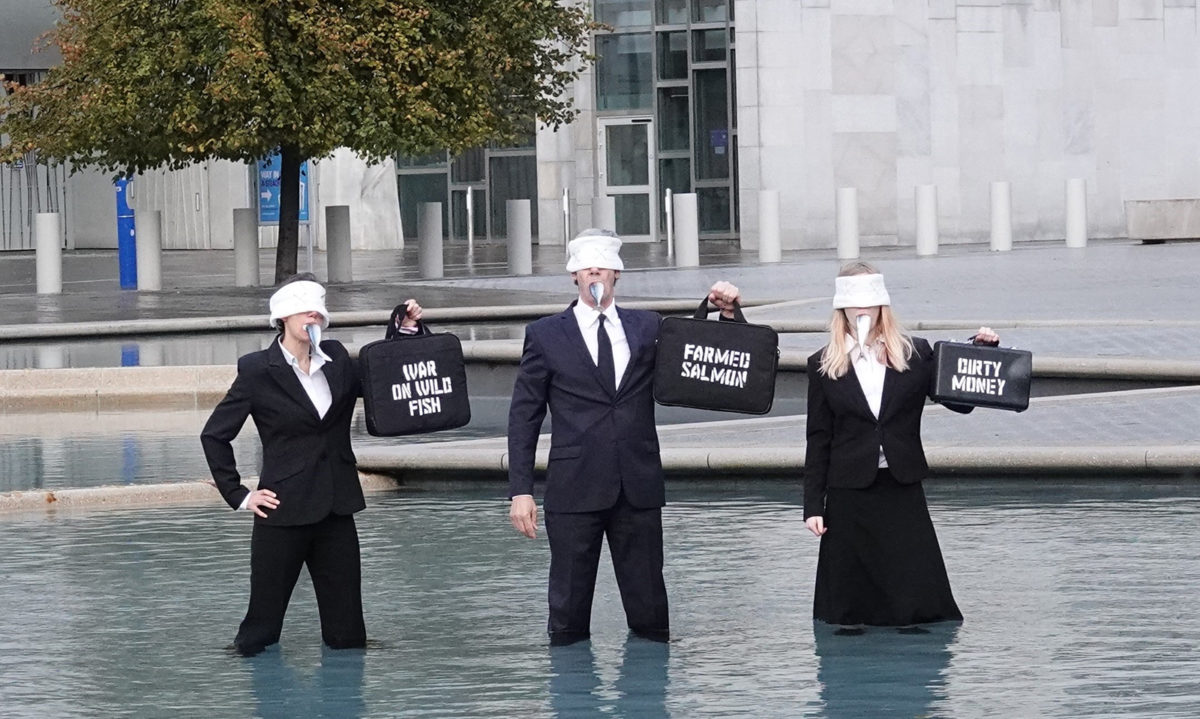
Another target should be to make all aquaculture corporations bear as close as possible the full costs of production. At present, they bear about 50%. This is an ecological issue as well as an economic one. They should be made to pay for the externalities, including loss of wild fish populations due to mass escapes from fish farms of treated fish that threaten wild fish and deliberate destruction of mangroves that have been the vital source of nutrition and biodiversity for millions of years and the base of local communities for countless generations.
stop subsidising harm
Since the 1980s, one third of the world’s mangroves have disappeared, due principally to the ravaging by multinational corporations and global finance. Will the COP15 negotiators have the courage to point the finger at what is responsible for the loss of vital mangroves or will they blather on about some target of preserving some percentage of mangroves? As they say, don’t hold your breath.
Marine Protected Areas: Stop the Bad Joke of ‘Paper Parks’
The ‘target’ of the draft COP15 agreement that has received most advance publicity is Target 3, known as ’30 by 30’, a commitment to have 30% of land and sea designated as ‘protected’ by 2030. As far as the sea is concerned, it would be a better and more realisable target to commit to proper protection of existing Marine Protected Areas. At present, many are ‘paper parks’, that is, protected on paper but not in reality.
Britain is a cardinal example. The government claims to be ‘world leading’ in reaching the target of 30% protected by 2030, and Boris Johnson claimed at the UN Summit on Biodiversity in September 2020 that it had already reached 26%. As was the norm with that Prime Minister, that was being economical with the truth. Research showed that in 71 of the 73 offshore MPAs operated by the UK bottom trawling and dredging, the most destructive forms of fishing, were being deployed. Another study found that in 39 of the MPAs, 25 supertrawlers, including the four biggest in the world and 15 Russian vessels, were fishing, quite legally and openly. Quite what is being protected?
When an MP proposed an amendment to the Fisheries Bill of 2020 to ban industrial trawling for fish in MPAs, the government blocked it. And to add comic relief to the evident dishonesty of the government, when Greenpeace dumped boulders in an MPA to deter bottom trawling, the government took legal action against Greenpeace. At least, the judge showed uncommon good sense in throwing out the case as ‘absurd’.
Britain is not alone in having vast areas of sea declared protected but left unpoliced. The COP15 target should be to have full policing and proper deterrent penalties for breaching rules designed to make such areas proper protective areas for marine species. Again, commercial fishery representatives should be kept at a healthy distance.
Marine Genetic Resources: The Next Frontier
One species-related issue concerns intellectual property rights in the sea. When UNCLOS was negotiated, the commercial potential of marine organisms was unrecognised. Since then ‘marine genetic resources’ have become economically important. Over 13,000 patents have been filed, 47% by the German chemicals giant, BASF, and 76% by just three countries, the USA, Germany and Japan. Patents confer twenty years of monopoly profits, and contradict any benefit-sharing ethos.
Of course, companies making investments and taking risks should be rewarded, but it should never be forgotten that the sea and everything in it are the commons. COP15 cannot resolve this particular conundrum but it should acknowledge that benefit sharing from the use of nature is part of what should be the human commitment to species survival and revival.
In sum, much could be done in COP15 to protect biodiversity and ecosystems in the vast marine areas of the world. The British government has been dormant at best, but has been complicit in worsening the crises, by fostering seabed mining, by leading on phoney Marine Protected Areas, by allowing chronic overfishing, by providing huge subsidies for destructive long-distance fishing, and by allowing the auctioning of our seabed for offshore energy generation without proper respect for environmental impact assessments.

Photos from top: 1, Gavan Goulder; 2, 4 and 5 Guy Reece, illumination of Torre de Bélem, João Daniel Pereira.
The fate of the Ocean depends on us all.
We’ll let you know what we’re doing to help.